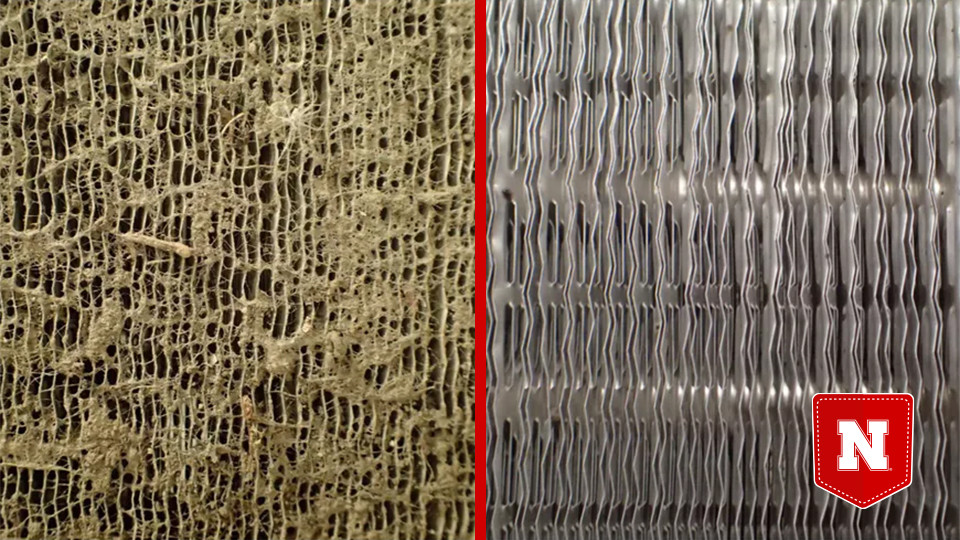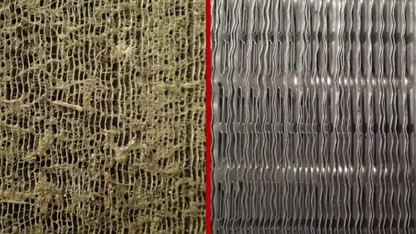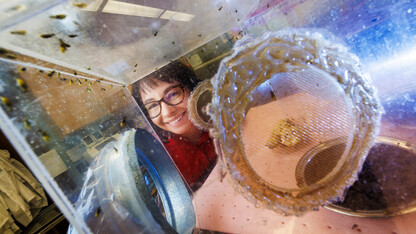· 2 min read
Debris on the A/C: Engineers dispel call for spring cleaning

Welcome to Pocket Science: a glimpse at recent research from Husker scientists and engineers. For those who want to quickly learn the “What,” “So what” and “Now what” of Husker research.
What?
With the mercury finally venturing past 60, many homeowners are commencing with a rite of spring: hosing off the outdoor air-conditioning unit, otherwise known as a condenser.
Mother Nature often covers a condenser’s coils with dirt, seeds and other debris. Because those coils help release heat into the outside air, homeowners and service technicians have long believed that debris can impair A/C performance by holding in the heat — but that a seasonal rinse relieves the issue.
So what?
To test this conventional wisdom, Nebraska’s David Yuill and colleague Mehdi Mehrabi decided to run experiments on previously used condenser coils rather than simulated debris and synthetic materials, as prior studies did.
The upshot? On average, dirty condensers performed just as well as clean ones. As often as not, in fact, the dusty condensers actually transferred heat better before they were cleaned than after — even when airflow was limited.Now what?
If you still feel compelled to clean your A/C, Yuill said, then feel free. At worst, it probably won’t hurt. But unless the condenser is absolutely caked in debris, it probably won’t help, either — so you shouldn’t feel guilty about skipping the routine.










